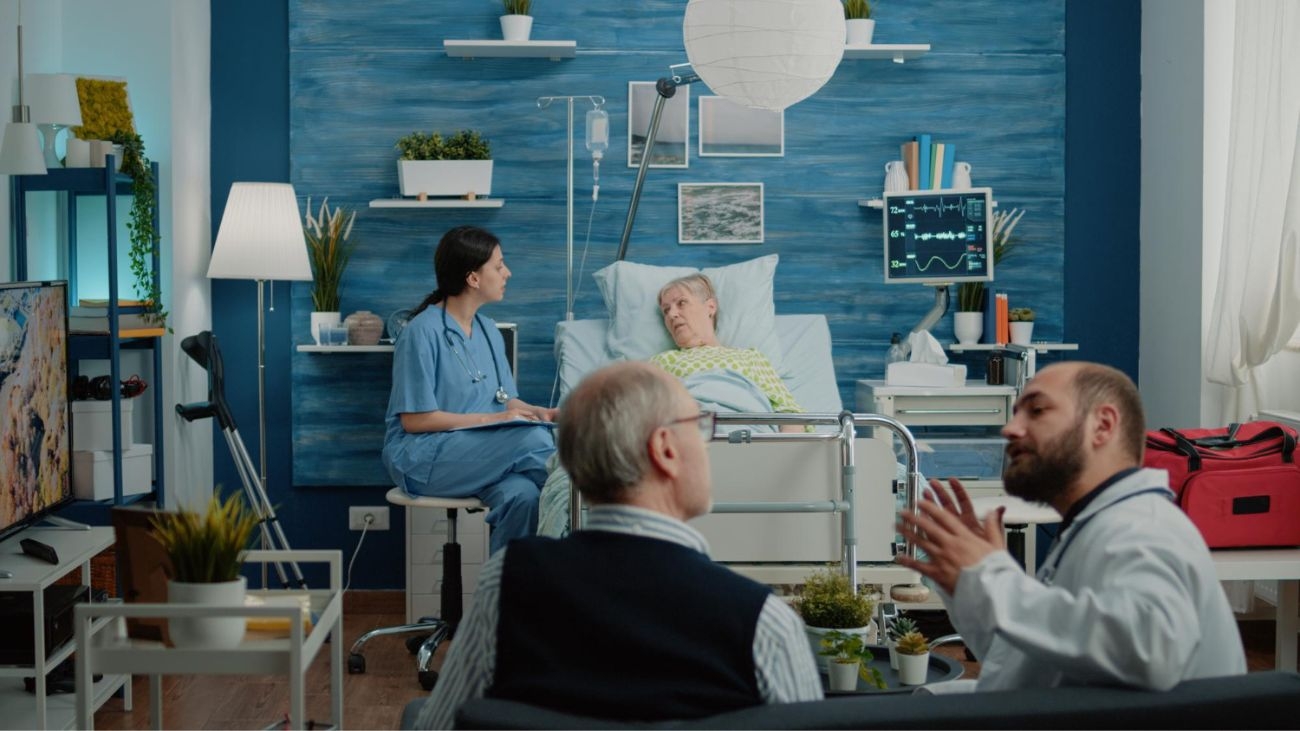As individuals age, managing chronic diseases becomes increasingly important for maintaining health and quality of life. For elderly individuals, specialized medical equipment plays a crucial role in disease management and overall well-being. In this guide, we explore the significance of disease management in elderly care and highlight essential medical equipment tailored to meet their unique needs.
Understanding Disease Management in Elderly Care:
American Medical Supplies provides a wide range of quality medical equipment for disease management in elderly care, which involves a comprehensive approach to monitoring, treating, and preventing chronic conditions commonly associated with aging. This includes conditions such as diabetes, hypertension, arthritis, heart disease, and respiratory disorders. Effective disease management strategies aim to optimize health outcomes, enhance functional status, and improve the overall quality of life for elderly individuals.
The Role of Medical Equipment Elderly Care: Disease Management
Quality Medical Equipment plays a vital role in supporting elderly individuals with chronic diseases by facilitating various aspects of disease management. From monitoring vital signs and administering medication to promoting mobility and assisting with daily activities, specialized medical equipment provides invaluable support to patients and caregivers in managing chronic conditions effectively.
Essential Medical Equipment for Elderly Care:
Blood pressure monitors:
Blood Pressure Monitoring is essential for elderly individuals with hypertension or heart disease to monitor their blood pressure levels at home regularly. These devices enable early detection of high blood pressure and help prevent complications such as heart attacks and strokes.
Glucose Monitors:
Glucose monitors are indispensable for elderly individuals with diabetes to monitor their blood sugar levels regularly. By tracking blood glucose levels, individuals can make informed decisions about medication, diet, and lifestyle adjustments to manage their diabetes effectively and prevent complications.
Mobility Aids:
Mobility aids such as walkers, rollators, canes, and wheelchairs are essential for elderly individuals with mobility limitations due to conditions such as arthritis or musculoskeletal disorders. These devices help maintain mobility, independence, and quality of life by providing support and stability during daily activities.
Oxygen Therapy Equipment:
Oxygen therapy equipment, including portable oxygen concentrators and oxygen tanks. It is essential for elderly individuals with respiratory conditions such as chronic obstructive pulmonary disease (COPD) or emphysema. These devices deliver supplemental oxygen to improve breathing and alleviate symptoms of respiratory distress.
Medication Management Devices:
Medication management devices such as pill organizers, medication dispensers, and automatic pills. Reminders help elderly individuals organize and manage their medications effectively. These devices promote medication adherence, prevent missed doses, and reduce the risk of medication errors.
Bathroom Safety Equipment:
Bathroom safety equipment, such as grab bars, shower chairs, and raised toilet seats. Elderly individuals need to prevent falls and injuries in the bathroom aids. These devices provide stability, support, and confidence during bathing, toileting, and grooming activities.
Home Monitoring Systems:
Home monitoring systems, including medical alert systems and fall detection devices. Provide peace of mind for elderly individuals and their caregivers by enabling immediate assistance during a medical emergency or fall. These systems facilitate prompt intervention and help prevent complications.
Adaptive Kitchen Aids:
Adaptive kitchen aids such as reachers, jar openers, and adaptive utensils are essential for the elderly. Individuals with arthritis or dexterity issues must maintain independence and safety during meal preparation and cooking activities.
Conclusion:
Disease management is essential for promoting health and well-being in elderly individuals with chronic conditions. Specialized medical equipment plays a crucial role in supporting elderly care by facilitating disease monitoring, treatment, and prevention. By incorporating essential medical equipment into elderly care plans. Caregivers can enhance the quality of life, promote independence, and improve health outcomes for elderly individuals living with chronic diseases. For more amazing news and posts, visit FinBiz Tech.
FAQs
Hey Siri, What medical equipment is vital for elderly care disease management?
Essential equipment includes blood pressure monitors, glucose monitors, mobility aids, medication management devices, and bathroom safety equipment.
How does medical equipment support elderly independence?
Equipment like mobility aids and adaptive kitchen tools enables seniors to perform daily tasks with ease, promoting autonomy and confidence.
Are there specialized devices for monitoring chronic conditions?
Yes, devices such as blood pressure monitors and glucose monitors are designed specifically to help seniors manage their health conditions effectively.
How can medical equipment enhance caregiver support for elderly care?
Medical equipment like home monitoring systems and medication management devices alleviate caregiver stress by providing assistance and ensuring safety.
Where can caregivers find reliable information about medical equipment for the elderly?
Caregivers can consult healthcare professionals, online resources, and medical equipment suppliers for guidance on selecting suitable equipment for elderly individuals.



